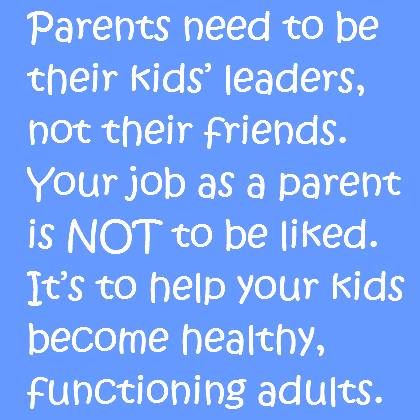
Are you guilty of doing things for your children? Beware! They might grow up with a sense of entitlement if you keep it up because you want to rush things. And it’s your child who will suffer in the end.
Before I became a dad, I always thought about how laidback a parent’s life is. Like any typical kid, I had household chores while I was growing up, tasks that involved feeding our farm animals. And I always grumbled about my father taking it easy while I’m left to do the onerous duty of waking up very early in the morning to feed the chicken and bring our few goats to their grazing ground.
And then I became a father myself, and it was like reality punched me in the gut.
Parents play a key role in the lives of their children. Parents who enforce firm rules within a loving relationship tend to have more successful outcomes for their children, research suggests. — Amy Quinn, MA, MS, LMFT
Parenting three rowdy kids isn’t easy much more teaching them to do things and delegating simple chores to each child fairly! There were many times when my wife and I took matters into our own hands by taking over their tasks. Doing so meant minor hassles, the job gets finished in record time and we didn’t have to repeat commands for the nth time before the kids comply.
But experts stress out the importance of letting kids do things on their own.

“Chores are the most practical and easiest way to teach kids about responsibilities at an early age. For example, if you teach them to make their beds on their own, you’re instilling in them the learning that they have to take care of their things,” said one child specialist.
In this note, I’ve listed below the four things we shouldn’t be doing for our kids while they’re staying under our roof. Yes, the results can be messy and less than stellar when we let them do these four tasks, but at the end of the day, they learn something – may that be a skill or a lesson – they can bring with them into adulthood.
Parents can practice autonomy-supportive parenting by creating an environment that supports autonomy. Parents who support the development of autonomy are involved in their child’s life but encourage independence and problem-solving skills. — Eva Lazar, PhD
- Tying Their Shoe Laces On Their Own
Your child should be able to tie his shoes on his own between 4 to 6 years old.
Shoelace tying is, arguably, the most frustrating thing I had to teach to my son. They were a frustration because I couldn’t seem to explain in words which lace went where to make the bow. So, our shoelace tying sessions always ended with me tying these sneaky things for him. But in the end, he learned through example, and I was surprised that after about two months of demonstration, he was able to tie his laces on his own. These are the things to consider when teaching your kid(s) the art of shoelace tying:
– Always use long laces. If the shoes you bought for your kids have short ones, buy longer laces and replace them.
– Stand behind your kid when demonstrating shoelace tying. Doing it while being in front of them can be confusing as it is a mirror image of what they’re supposed to do.
– Always practice. If your only chance at teaching tying is doing it every morning then, it would take a long time for them to learn it. Practice while watching TV. Practice when there’s free time. Practice.Practice.Practice.
- Taking A Bath
Your kids should be able to take a bath by themselves starting at the age of 5. Of course, don’t leave them unsupervised (as they might require your assistance from time to time) but let them do the water temperature checking, turning the faucet on and off and the washing all by themselves.
- Preparing And Getting Their Food
My mother was one tough lady. I was only 6 when she first taught me how to cook. I was so small at that time I had to stand on a stool to reach our sink so I could wash the vegetables and the other things I needed for cooking. By 8, I was cooking fish and stir-frying vegetables.
Unfortunately, I didn’t get my mother’s seemingly never-ending patience and a knack for teaching. Whenever I make attempts to show my eldest (already 9) basic cooking skills, our lessons always ended in me doing all the stuff because of my impatience.
Anyway, start with allowing your kids to help in food preparations when they’re four. Children are almost always eager to lend helping hands when it comes to doing “adult” duties so, take advantage of that. At 6, allow them to prepare sandwiches on their own; just be there when sharp objects like knives are involved. Teach them to cook simple fares like scrambled eggs when they reach 8.

- Laundry
Laundry is one of the most hateful yet vital tasks there is in the house. Dealing with dirty clothes is such a pain in the head at times especially if you have a large family. So, it was one of the chores I and my wife taught our kids at an early age.
I let my kids, aged 7 and 9, wash their underwear all by themselves every day and they’ve been doing this for two years now. My wife also let them help her do the laundry on Saturdays. She doesn’t allow them to help with the folding for now, but she does require them to tidy up hangers and such.
Letting your kids pitch in various household tasks will always seem like a “hit or miss” thing. But don’t look at how messy the results seem to be or how long it takes for them to perfect a specific task. What matters is you’re teaching your children the value of responsibility and independence.
…inner confidence leads the child through many stages of autonomy and eventually through the turbulent but successful transitions of adolescence into adulthood. — Jonathan Bartlett, MA, MFT
Contributor: Busy Daddy of Three